![]()
Business Council for Sustainable Development in Hungary
1118 Budapest, Ménesi street 9/a.
Policies and statements
Privacy policy
Competition Law Statement
Code of Ethics
World Business Council for Sustainable Development (WBCSD) National Partner
Founded in 1990, the company, which employs nearly 150 people, provides its customers with the warehousing and transport of dry, chilled, and frozen food products, and a full range of logistics services.
They were among the first in Hungary to buy CNG, LNG and then mild hybrid trucks, and this year will see the arrival of electric refrigeration. Their company car fleet can only consist of environmentally friendly vehicles.
They operate ISO 14001 and ISO 50001 systems and a sustainability working group. They joined SBTi in 2018. At the group level, they produce a CDP report on their environmental impact and continuously measure their GHG emissions in the three main areas (by GHG at Scope1, Scope2, and Scope3 levels respectively) as part of their internal reporting system.
They are committed to diversity, acceptance, non-discrimination, and individuality throughout the Group and in their operations. They provide continuous training for their employees – this contribute to the implementation of their sustainability strategy, as well.
Regular communication and a proactive approach are the hallmarks of their relations with their partners, both customers and suppliers.
They joined the BCSDH because they believe that an organisation that includes large companies can effectively represent the sustainability aspirations of the companies and provide a good example and professional guidance to the business. As a member of the organisation, they would like to further their professional knowledge to be part of an innovative team and receive support.
Founded in 1999, the firm currently has more than 35 lawyers and provides legal advice to its national and international clients.
KINSTELLAR contributes to sustainability primarily through its operations, its business objectives, its projects, and the cases it undertakes.
KINSTELLAR strives to operate in a carbon-neutral way to reduce its environmental footprint; its main objective is to reduce its ecological footprint, including in particular carbon footprint reduction and water footprint reduction, and in the field of energy procurement to reduce pollutant emissions by improving the efficiency of the energy source used. The company’s materials and waste strategy has taken steps such as reducing waste; recycling municipal, plastic, and paper waste; and reusing or recycling IT waste.
Employees are the core value of the office and it aims to achieve higher levels of value creation concerning basic human values and diversity through measures such as increasing staff and professional diversity by education and competence, gender balance in management, supporting return to work after childbirth, measuring and improving staff satisfaction, and increasing staff perceptions of job security.
They have not yet prepared a sustainability report but aim to publish regarding the year 2024.
They have joined BCSDH because they wish to participate and contribute to constructive and forward-looking workshops, based on their professional competence, to contribute modern sustainable business solutions.
 In addition to climate change and biodiversity loss, growing inequalities are our world’s most urgent sustainability challenge. Growing inequalities have become systemic risks globally, threatening not only individual communities or companies but entire economies and societies.
In addition to climate change and biodiversity loss, growing inequalities are our world’s most urgent sustainability challenge. Growing inequalities have become systemic risks globally, threatening not only individual communities or companies but entire economies and societies.
“Inequalities are an obstacle to social and economic progress, which also affects the performance of companies. At the same time, inequalities are also a consequence of our systems, which we can change. However, this requires the highest level of commitment, immediate action, and systemic change. We believe that the business sector must play a leading role in achieving this desired rapid change,” – said Attila Chikán Jr., President of BCSDH, in his opening speech.


“Companies can do most to reduce inequalities through their employees. Social innovation is key to moving forward, which means the holistic implementation of new solutions for working, learning and social protection for the benefit of workers, employers and society in general. This will lead to future-proof labour markets that work for all,” — emphasised Sonja van Lieshout, who was invited to speak by Randstad Hungary’s professional support.


In a closed professional forum following the presentation, business leaders and corporate, academic and civil experts discussed the current state of play and challenges associated with Human Value, such as the risk to business created by polarisation and loss of trust, creating value by valuing human capital, and the links between physical and mental health and efficiency, and explored several business best practices and solutions. These three main topics were led by Attila Kelemen, CEO of ProSelf Zrt, Sándor Baja, Managing Director of Randstad Hungary and Gréta Nagy, Managing Director of Dandelion Kft.


 The insights from the professional forum, including the challenges and enabling factors that were identified, will be further processed during executive roundtable discussions in May. Our goal is to provide recommendations for companies on the topic of human value, which will be presented at the BCSDH Business Lunch in October. It is important to encourage companies to act in this area and assist them in taking the most important steps.
The insights from the professional forum, including the challenges and enabling factors that were identified, will be further processed during executive roundtable discussions in May. Our goal is to provide recommendations for companies on the topic of human value, which will be presented at the BCSDH Business Lunch in October. It is important to encourage companies to act in this area and assist them in taking the most important steps.
We hereby thank our Time to Transform 2030 sponsor:
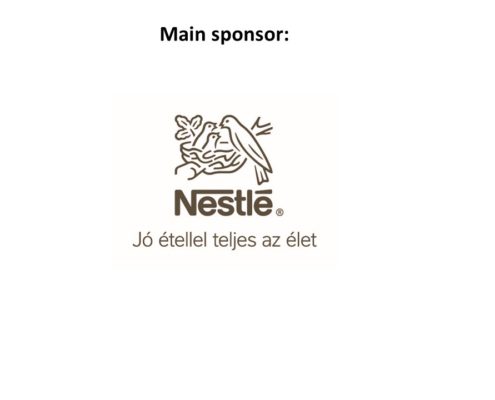
Support campaigns for cats and dogs living in shelters will continue in 2024 as part of the cooperation between SPAR Hungary and the National Animal Protection Foundation. Last year, the initiative was successful in collecting 32 000 kg dry food and more than 45 000 cans of canned pet food, among other items.
SPAR Hungary has been helping animal shelters, zoos and wildlife parks in Hungary for more than a decade by donating products that have been taken out of commercial circulation but can still be used for feeding animals. The company has also been organising animal food collection campaigns with Országos Állatvédőrség Alapítvány (National Animal Protection Foundation) for more than 10 years, to support NGOs involved in animal rescue activities. In addition to collecting donations, the aim of the initiative is to raise awareness of responsible pet-keeping and the importance of the work of shelters.
The national campaign is continued this year. Organisations involved in animal rescue can join the collection of donations through the National Animal Protection Foundation which coordinates and schedules the campaign activities. Shoppers in SPAR and INTERSPAR stores can meet the NGOs each month and support their work by donating pet food. To find out where and when the collections are taking place, you can visit the dedicated SPAR online platform available at: www.sparafenntarthatojovoert.hu/mancsabajban
“Unfortunately, in Hungary there are many pets living in appalling conditions, roaming the streets or with irresponsible owners who do not give them attention and love, nor adequate food of sufficient quantity and quality. In many cases, domestic animal shelters are overcrowded with dogs and cats waiting for adoption, and the care of these animals requires a great deal of effort. For them, the pet food collection campaigns of SPAR and National Animal Protection Foundation, launched ten years ago and organised again last year, provide tangible help. We are very grateful to all our customers who have supported the initiative so far and will continue to do so in the future, and of course a huge acknowledgement goes to the animal rescue organisations that are constantly performing extremely important activity on the verge of their strength and possibilities,” said Márk Maczelka, head of communications at SPAR Hungary.
During the 174 donation collection events in 2023, a total of 27 344 kg of dry food, 17 704 pcs of canned food and 1216 dog salami treats were donated to puppies nationwide. And for cats, 27 814 items of canned food and pouches, as well as 4646 kg of dried food were collected. The company and the National Animal Protection Foundation organised the third “Mancs a bajban!” (Paw in trouble!) fundraising campaign in May with support from animal rescue NGOs. During these two days, activists collected almost 9000 kg of dry food and 4500 cans of canned food for dogs, as well as more than 1000 kilograms of dry food and 2500 cans for cats in 35 INTERSPAR hypermarkets across the country. In addition to this, shoppers also contributed to the success of the campaign with donating various pet supplies and cleaning products, and SPAR donated an additional 1 million HUF to the National Animal Protection Foundation.
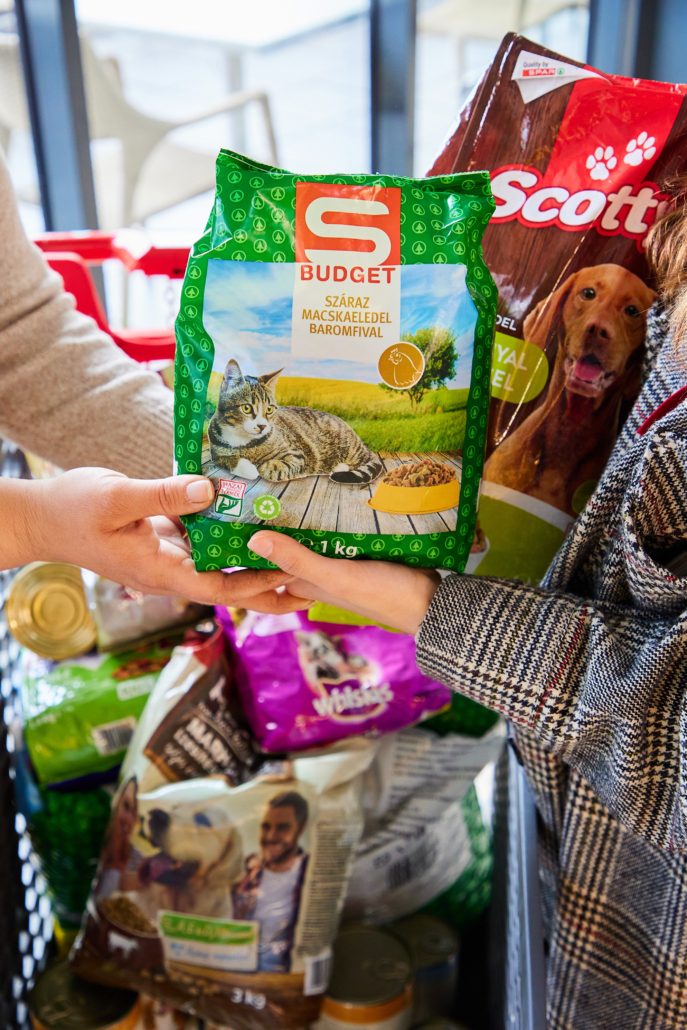
FE-GROUP INVEST Zrt. will process the waste from products subject to the Deposit Refund System (DRS) introduced this year, at its new waste processing plant. The investment, 70 percent of which was awarded by the Energy Strategy Institute Nonprofit Ltd’s non-refundable grant worth HUF 300 million, includes a special line of machinery consisting of an automatic sorting plant extended with mechanical separation technology, two baling machines capable of baling metal beverage cans and PET bottles, and a conveyor belt.
“It is equally important of our commitment to sustainability and the development of our waste management business that we use the money won from the tender to support the technological transition of waste from the DRS system to circular economy,” said Anita Simon, Deputy CEO for Sustainability and Circular Economy at ALTEO.
The investment will enable ALTEO’s subsidiary to produce 11,400 tonnes of PET bales and 3,050 tonnes of aluminium bales per year, while another 760 tonnes of tin and ferrous metals will be separated during processing. To this end, the site will receive 15,210 tonnes of mixed waste per year under a two-year service contract signed last summer with MOHU MOL Hulladékgazdálkodási Zrt., the winner of a 35-year waste concession in Hungary, which can be extended for a further two years.
Exciting news! SolServices has been awarded as the TOP Sustainability Solutions Provider in Europe by the Applied Technology Review Europe Edition. With this, the company is leading the list of the TOP 10 Sustainability Providers in the Journal! This recognition underscores our commitment to revolutionise the CEE region’s energy sector through innovative, climate- and nature-friendly utility scale solar park developments in Hungary.Check the details and the whole story from the website OR after a free, non-binding, but obligatory registration you can read the whole journal with our Cover Story as well

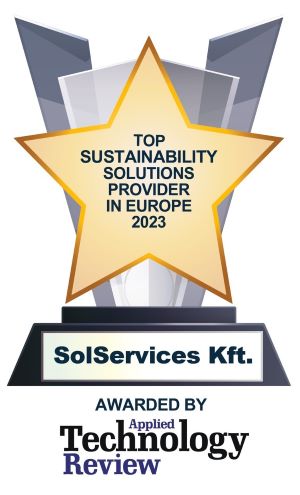
Market Építő Zrt. embarked on the path of sustainability in 2020 and this path has brought many challenges and new approaches to the Company’s operations. Over the past 4 years, we have systematically progressed in the implementation of the tasks included in our sustainability strategy.
As we were among the first in the industry to catch up in ESG in Hungary, we lacked a good example to follow. So we had to pave this path ourselves, which is not easy, but we have gained a lot of experience and successful sustainability-related projects.
The adoption of the ESG law at the end of 2023 has fundamentally shaken up large companies in Hungary. The Market Group is in the fortunate position that the steps it will take in compliance with its 2021’s strategy in place coincide with the challenges of aligning with the CSRD and EU taxonomy. Already in 2024, we have started to focus more on regulatory compliance.
What does this mean in practice?
We first published a Group-level ESG report for 2021, and the following year we published an audited report. Sustainability is managed at top executive level and dedicated specialists work in this area. Based on those results, we have achieved some of the legal compliance much earlier than expected.
In the future, we will strive to publish our sustainability report in Hungarian by 30 June each year, so we have set tighter deadlines for sub-tasks and optimised data collection processes. Currently we report according to the GRI standard, but this year we will start to take into account the ESRS standard framework. There is some relief in the story given the significant overlap between GRI and ESRS requirements.
A key element of the CSRD is the Dual Materiality Assessment, which was prepared in February 2024 with the assistance of an external consultancy. Another important deliverable is that we will be able to include the total scope of emissions in our report, so that we can start assessing our scope 3 emissions in the first half of 2024 – this is expected to be a multi-year project.
The sustainability report should include a classification according to the EU taxonomy, that is our company should identify “environmentally sustainable” economic activities that “contribute significantly to (at least one of) the EU’s climate and environmental objectives, while not violating any of the DNSH objectives. The main way to achieve taxonomy compliance will be through the inclusion of financial and technical areas, which is already under preparation.
A major challenge for companies, and with it for the Market Group, is one of the requirements of ESG reporting: the environmental and social assessment of suppliers. Therefore, starting this year, we will inform and educate our partners about the upcoming ESG obligations. We are striving to help them to overcome the obstacles related to sustainability, as we know exactly how difficult it is to integrate the new approach into their operations.
Another important aspect of ESG reporting is that companies must establish and integrate a risk management system into all their relevant business processes, including the identification of social responsibility and environmental risks. This process is currently being planned in the Market Group.
Four SPAR stores in Budapest will, initially on a trial basis, only offer barn, organic and free-range eggs, excluding cage eggs, from the end of January 2024. The latter have already been gradually phased out of the market, in line with EU efforts to end cage farming in the member states.
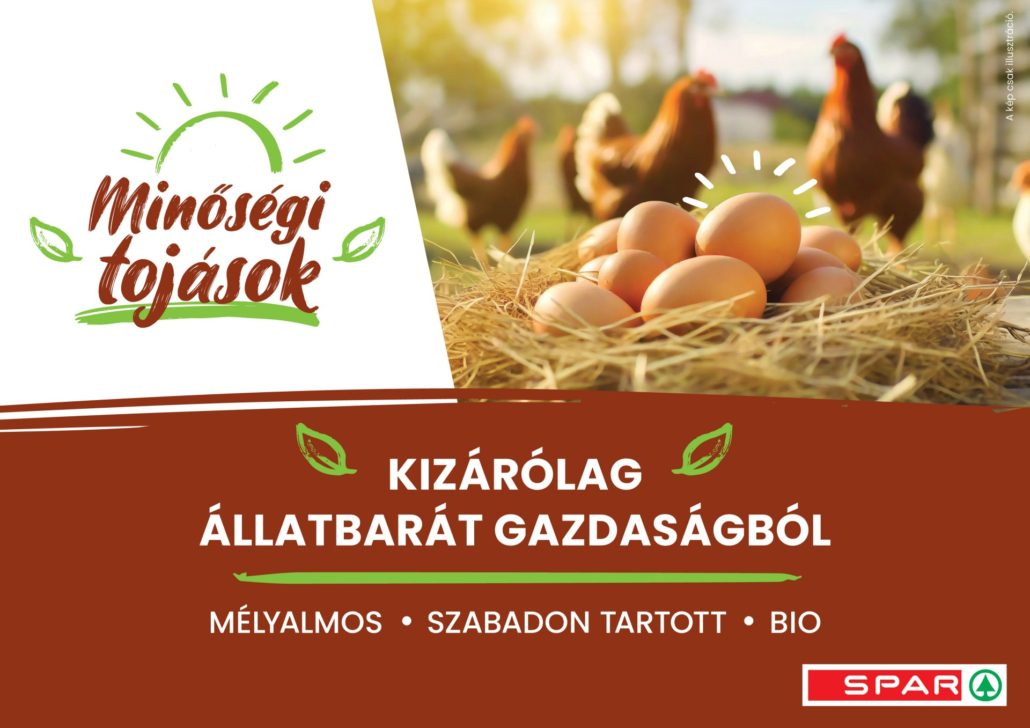
The proportion of barn, organic and free-range eggs sold in SPAR stores has gradually increased over the last decade, while the proportion of caged eggs has decreased. While e.g. in 2014, 2.24 percent of all eggs sold were in the organic category, by this year the share has doubled. The same is true for free-range eggs which have been available in SPAR stores for four years: their share has quadrupled from 0.96 percent in 2020 to nearly 4 percent of all eggs sold in 2023. The proportion of eggs from barn production has also increased dramatically, from nine out of every 100 eggs sold 10 years ago to three times that number today.
“Our supermarkets in MOM Park in Budapest, Stop Shop on Hűvösvölgyi út, the Rózsakert shopping centre on Gábor Áron út and the SPAR supermarket on Péterhegyi lejtő in District XI, will offer only barn, organic and free-range eggs from 2024, in a pilot programme. During the recent years, our company has been continuously reducing the proportion of cage eggs, in order to approach the EU target,” explained Márk Maczelka, head of communications at SPAR Hungary.
The range of eggs will continue to be extensive in the four designated stores, with 16 types of barn, organic and free-range products. All eggs distributed in SPAR stores come from reliable local producers. In order to allow producers, suppliers and consumers to adapt, SPAR Hungary is gradually moving towards barn, organic and free-range eggs.
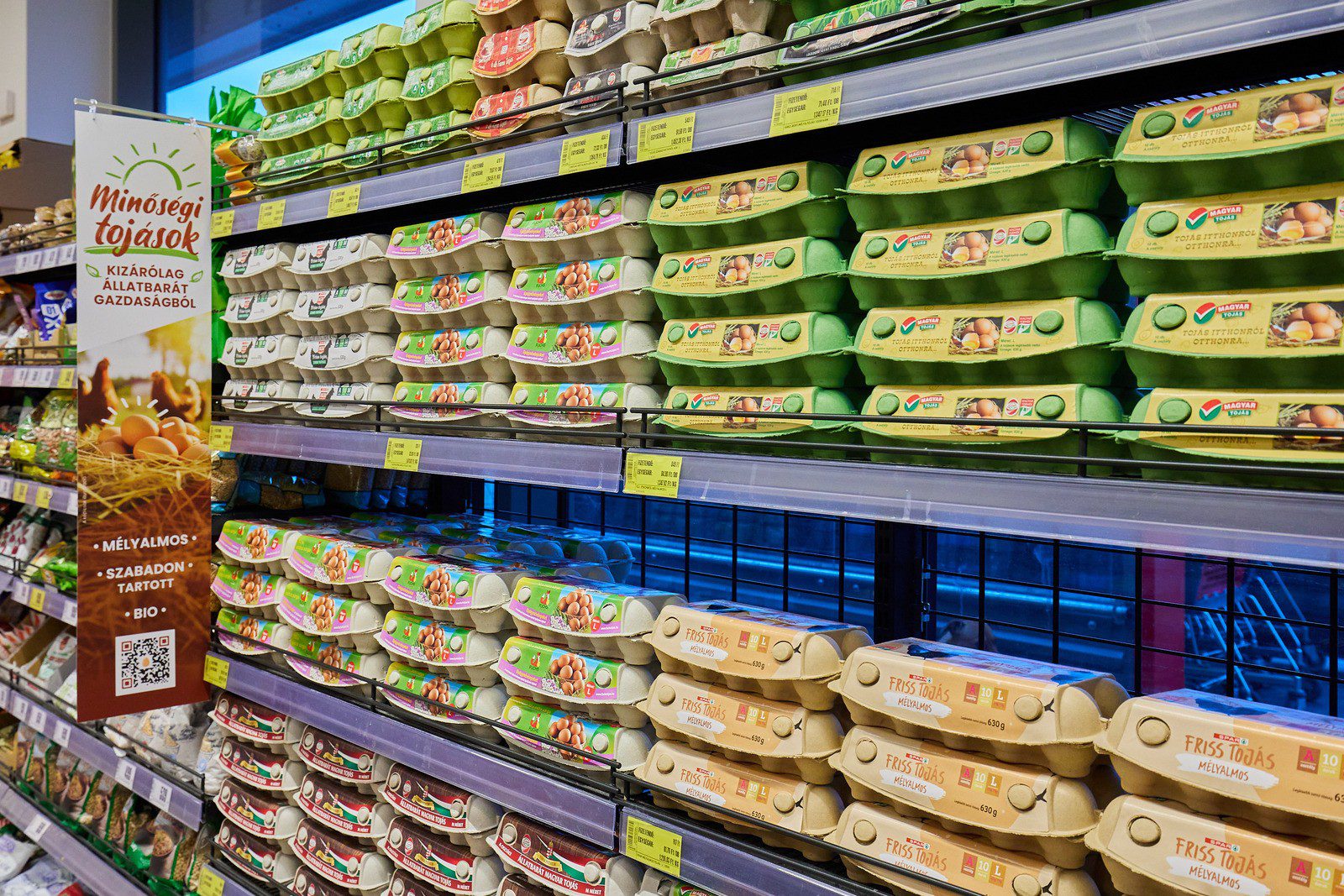
E.ON is pledging HUF 25 million in support to primary- and pre-school communities, who have been invited to pitch their sustainability concepts, the best which will receive funding towards their realization.
To promote the teaching of environmental sustainability, once again E.ON Hungária Group is launching its “Champions of the Earth” competition.which provides funding to primary- and preschool communities comprised of students and their teachers or parents who are committed to working for a sustainable future.
As of last year, the call for submissions has included the following areas: renewable energy, energy efficiency, climate protection, greenhouse gases, air quality, water conservation, recycling, natural resources, and biodiversity. Details for proposal submissions and application materials are available on the Champions of the Earth website, and applications must be submitted by 5 April 2024. Successful entrants to the HUF 25 million competition can win HUF 2.5 million HUF per project to help them implement their green ideas. Judging will be done by both E.ON and members of the public, who can cast their vote for what they feel are the best projects.

Short, inspiring videos featuring last year’s winning entries, available on E.ON’s website, show entrants presenting their projects. They’re worth checking out for anyone applying to this year’s Earth Champions programme or who want to implement their own green projects.
Contest entries will be judged by a five-member jury consisting of Guntram Würzberg, CEO of E.ON Hungária Group, Dr. Diána Ürge-Vorsatz, physicist and climate scientist, as well as sustainability experts Katalin Szomolányi, founder of Planet Fanatics, and Réka Nagy, Ökoanyu, climate communication speaker, writer, journalist, and Lia Pokorny, actress and author of a sustainability cookbook.
Environmental and sustainability education starts through small steps, and E.ON believes that even the smallest primary- or preschool community projects can bring about change in their immediate environment. By working together, every community can pitch in to create a more sustainable tomorrow and a new generation of more environmentally sensitive students.
![]()
Business Council for Sustainable Development in Hungary
1118 Budapest, Ménesi street 9/a.
Policies and statements
Privacy policy
Competition Law Statement
Code of Ethics
World Business Council for Sustainable Development (WBCSD) National Partner
